Clancy Tucker's Blog, page 250
August 11, 2015
12 August 2015 - OLYMPIC FACTS

OLYMPIC FACTS
G'day folks,
Welcome to some interesting facts about the Olympic Games.
The early Olympic Games were celebrated as a religious festival from 776 B.C. until 393 A.D., when the games were banned for being a pagan festival (the Olympics celebrated the Greek god Zeus). In 1894, a French educator Baron Pierre de Coubertin, proposed a revival of the ancient tradition, and thus the modern-day Olympic Summer Games were born.Host Greece won the most medals (47) at the first Olympic Summer Games in 1896.The first Winter Olympic Games were held in Chamonix, France in 1924.Norway has won the most medals (263) at the Winter Games.The United States has won more medals (2,189) at the Summer Games than any other country.The five Olympic rings represent the five major regions of the world – Africa, the Americas, Asia, Europe and Oceana, and every national flag in the world includes one of the five colors, which are (from left to right) blue, yellow, black, green, and red.Up until 1994 the Olympics were held every four years. Since then, the Winter and Summer games have alternated every two years. The first Olympics covered by U.S. television was the 1960 Summer Games in Rome by CBS.No country in the Southern Hemisphere has ever hosted a Winter Games.Three continents – Africa, South America, and Antarctica – have never hosted an Olympics.A record 202 countries participated in the 2004 Olympic Summer Games in Athens.Only four athletes have ever won medals at both the Winter and Summer Olympic Games: Eddie Eagan (United States), Jacob Tullin Thams (Norway), Christa Luding-Rothenburger (East Germany), and Clara Hughes (Canada).Speed skater Bonnie Blair has won six medals at the Olympic Winter Games. That's more than any other American athlete.Nobody has won more medals at the Winter Games than cross-country skier Bjorn Dählie of Norway, who has 12.Larrisa Latynina, a gymnast from the former Soviet Union, finished her Summer Olympic Games career with 18 total medals—the most in history. The United States Olympic Committee established the U.S. Olympic Hall of Fame in 1983 to recognize outstanding American Olympic athletes, however, a plan to build a hall has been suspended due to lack of funding.The Summer Olympic sports are archery, badminton, basketball, beach volleyball, boxing, canoe / kayak, cycling, diving, equestrian, fencing, field hockey, gymnastics, handball, judo, modern pentathlon (shooting, fencing, swimming, show jumping, and running), mountain biking, rowing, sailing, shooting, soccer, swimming, synchronized swimming, table tennis, taekwondo, tennis, track and field, triathlon (swimming, biking, running), volleyball, water polo, weightlifting, and wrestling.The Winter Olympic sports are alpine skiing, biathlon (cross-country skiing and target shooting), bobsled, cross-country skiing, curling, figure skating, freestyle skiing, ice hocky, luge, Nordic combined (ski jumping and cross-country skiing), skeleton, ski jumping, snowboarding, and speed skating.
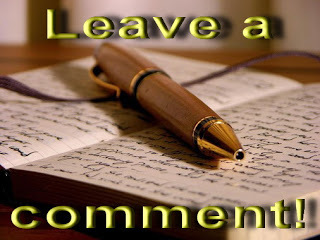
Clancy's comment: There ya go. Did you know all that?
I'm ...

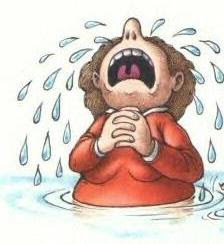
Published on August 11, 2015 01:30
August 10, 2015
11 August 2015 - QUOTES FROM PLATO
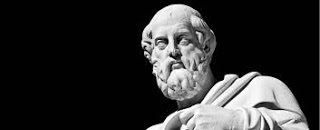
QUOTES FROM PLATO
G'day folks,
Welcome to some great quotes from an ancient Greek.
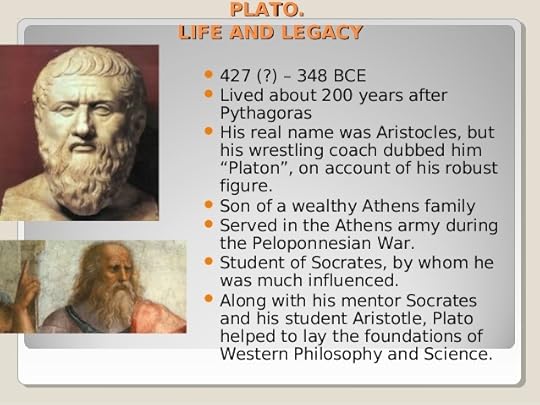
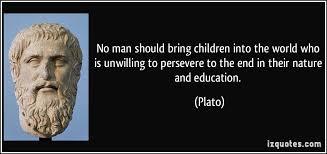
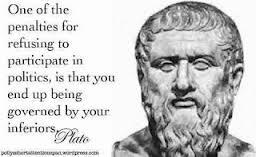
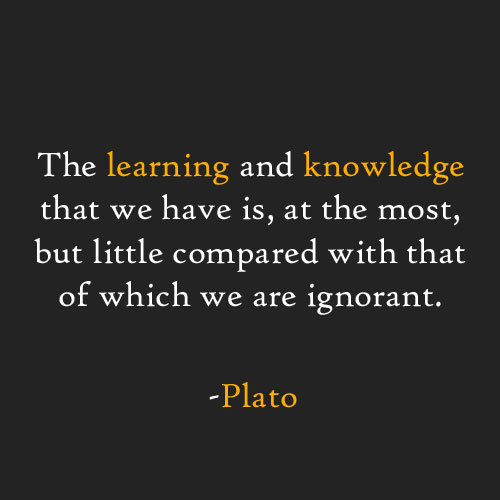

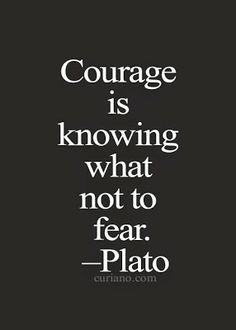
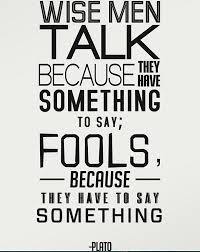
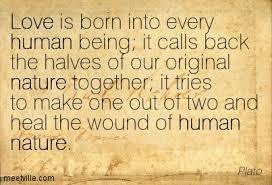
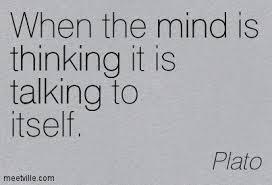
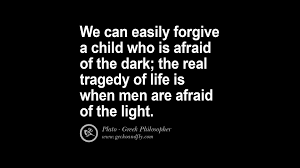
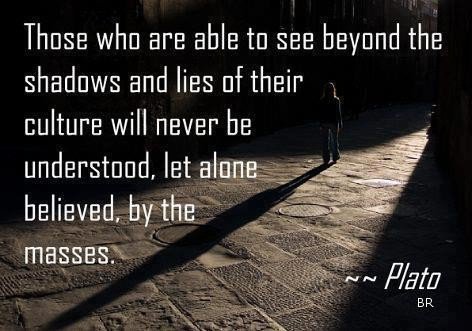
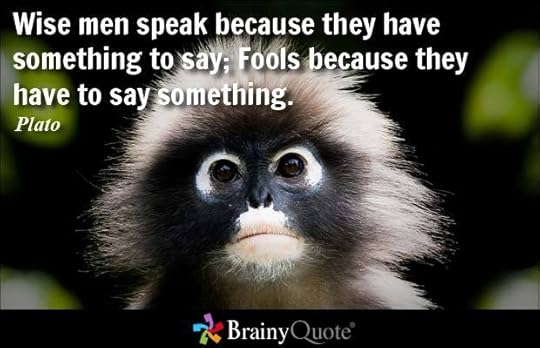
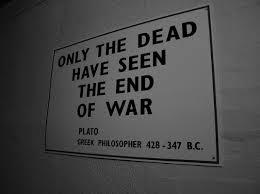
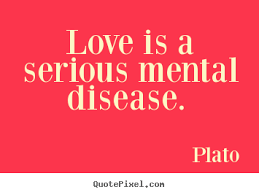
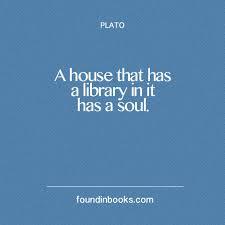
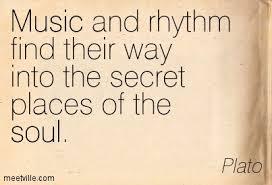
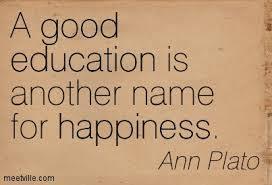

Clancy's comment: Ah ... Wise words from one of the many golden Greeks.
I'm ...

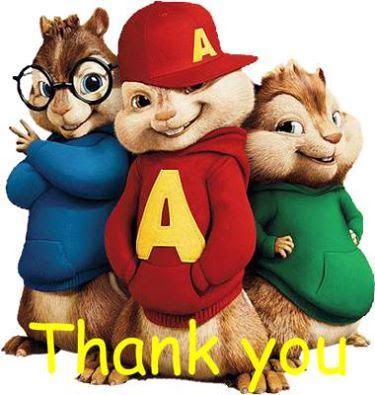
Published on August 10, 2015 05:10
August 9, 2015
10 August 2015 - JOHN DEAN
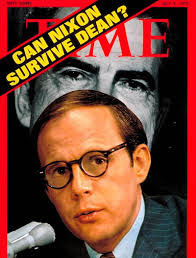
JOHN DEAN
G'day folks,
Here is a man who featured largely in the life of President Nixon. John Wesley Dean III served as White House Counsel for United States President Richard Nixon from July 1970 until April 1973.
John Dean served as the White House Counsel for former president, Richard Nixon and is best-known for his deep-seated association in the events leading up to the Watergate crimes and the ensuing, Watergate scandal. Even though he was referred to as the ‘master manipulator’, by the FBI, he pleaded guilty and his prison-sentence was reduced. However, Dean found solace in the fact that he had a wide number of admirers, who saw him as courageous and truthful rather than self-serving and disloyal. He is also an author, avid columnist, commentator, a political contemporary and a strong supporter of the Republican Party.
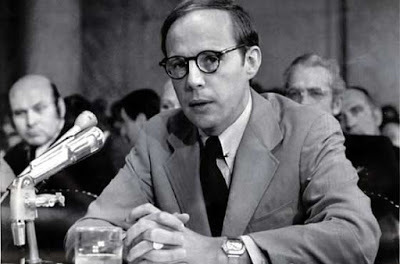
He went on to write a number of books on Watergate Scandal and about the Nixon White House. Books such as ‘Blind Ambition’ and ‘Worse than Watergate: The Secret Presidency of George W. Bush’ went on to become highly popular, yet highly controversial publications, which hurled him into the spotlight. During the presidency of George W. Bush, he became an opinionated critic of the President’s administration for which he was jeered at by many. Nevertheless, he continued to publish books on his presidency and even disclosed important information about the White House through his works.
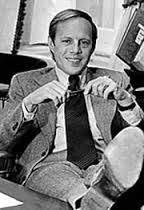
Childhood & Early Life
John Wesley Dean was born in Akron, Ohio, and was raised in Marion for a couple of years, before the family moved to Flossmoor, Illinois. He then attended Staunton Military Academy for high school and Colgate University for his undergraduate course. However, he shifted to The College of Wooster in Ohio, from where he finally completed his B.A. in 1961. In 1965, he earned his ‘Juris Doctor’ degree from Georgetown University Law Center, following which he joined a law firm in Washington, D.C.
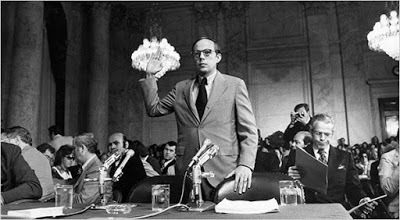
Career
From 1966 to 1967, Dean was recruited as the chief minority advisor to the Republican members at the ‘United States House Committee on the Judiciary’. He was then employed as the associate director of the National Commission on Reform of Federal Criminal Laws for two years. In 1968, during President Richard Nixon’s presidential campaign, he volunteered to write position papers on crime and the following year, he served under Attorney General, John N. Mitchell as the associate deputy in office. Richard Nixon, the then president, was impressed with Dean’s commitment and appointed him as the personal counsel and the existing counselor, John Ehrlichman, was re-appointed as the chief domestic advisor. During the campaign in 1972, Dean and a couple of other former FBI agents and members of Committee of the Re-Election of the President presented an initial plan for intelligence operations which was unapproved. They were asked to scale down the plan and attempts to spy on the Democratic National Committee were carried out. The burglars broke in at the Watergate complex twice, both of which took place in 1972. After the offenders were taken into custody and questioned, Dean took the evidence and money and destroyed some of it before the remainder was found by investigators. On March 23, 1973, the Watergate burglars were sentenced to prison, while Dean hired an attorney inconspicuously and continued to work as Nixon’s White House Counsel. As Nixon was unaware of Dean’s involvement, he had asked him to prepare a report of all the evidence found and everything he knew about the scandal. However, this was a particularly trying task for him as he was a part of the scandal too, even if it was indirect. As a result, he could not complete the report and was fired by Nixon on April 30, 1973. On June 25, 1973, he began his testimony before the Senate Watergate Committee and was breaking new ground in the investigation and attracted widespread media coverage. He pled guilty on October 19, 1973, but was only to serve a prison term of one to four years. His sentence was reduced to four months and he was expelled as a lawyer. Shortly after the scandal, he resorted to writing and was became a part-time investment banker. He recounted his experiences at the White House in the books, ‘Blind Ambition’ which was published in 1976 and ‘Lost Honor’, which was published in 1982. In 2000, he retired from investment banking and in 2006 he authored ‘Conservatives Without Conscience’, which was received positively by readers in the United States. The following year, he published ‘Broken Government: How Republican Rule Destroyed the Legislative, Executive and Judicial Branches’. In 2009, he appeared on ‘Countdown’ and was accused of new information related to the Watergate Scandal and the Nixon tapes.
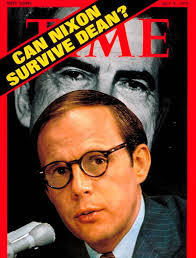
Major Works
‘Worse than Watergate: The Secret Presidency of George W. Bush’ drew attention to the military and administrative issues that were carried out under the President’s tenure. Although this book attracted negative publicity, it was rated by critics as one of the ‘boldest publications’ by a former-White House member, in the last decade.
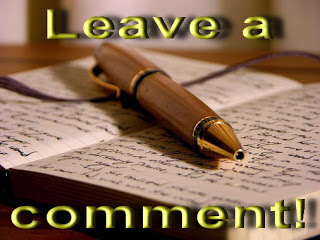
Clancy's comment: I lived in Washington DC during this period, and I also attended some of the Watergate Trials where I saw and heard all of the major players. They were interesting times.
I'm ...

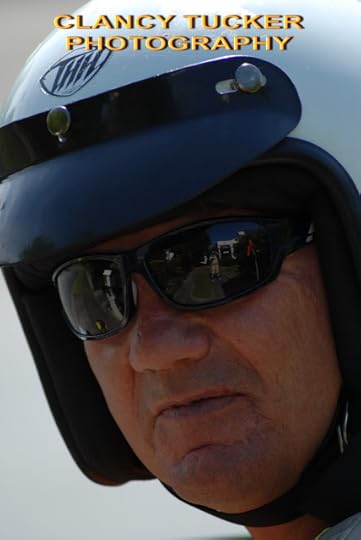
Published on August 09, 2015 03:20
August 8, 2015
9 August 2015 - SPORTS SUPERSTITIONS
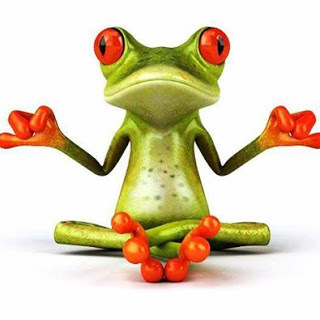
SPORTS SUPERSTITIONS
G'day folks,
Ever been superstitious about something? Here are some crazy superstitions in sport.
We all hear popular superstitions when the 13th day of the month falls on a Friday. And no player wants to wear the number 13. It is said that superstitions have been a part of sports since their beginning. Players and fans alike have their ways of avoiding bad luck.
Some superstitions are stranger than others. For example, Michael Jordan (a graduate of North Carolina) always wore his blue North Carolina shorts under his Bulls uniform for good luck. Baseball pitcher Turk Wendell brushes his teeth and chews licorice between every inning. Wade Boggs eats only chicken the day of a game and draws a symbol that means “To Life” in the dirt before every at-bat. Former pitcher Mark “The Bird” Fidrych used to play with the dirt on the mound and talk to himself before every inning.
Here are some other common superstitions.
BaseballSpitting into your hand before picking up the bat is said to bring good luck.A wad of gum stuck on a player's hat brings good luck.It is bad luck if a dog walks across the diamond before the first pitch.Some players believe it is good luck to step on one of the bases before running off the field at the end of an inning.It is bad luck to touch the baselines while running off and onto the field between innings.Lending a bat to a fellow player is a serious jinx.Some players actually sleep with their bat to break out of a hitting slump or stay in a groove.If a pitcher is throwing a perfect game or a no-hitter, never speak of it while it's going on.BasketballThe last person to shoot a basket during the warm-up will have a good game.Wipe the soles of your sneakers for good luck.Bounce the ball before taking a foul shot for good luck.BowlingTo continue a winning streak, wear the same clothes.The number 300, a perfect score, on your license plate will increase your score.Carry charms on your bowling bag, in your pockets, or around your neck for good luck.FishingFish may not bite if a barefoot woman passes you on the way to the dock.Spit on your bait before casting your rod to make fish bite.Throw back your first catch for good luck.It is bad luck to change rods while fishing.Don't tell anyone how many fish you've caught until you're done or you won't catch another.FootballDouble numbers on a player's uniform brings good luck.It's bad luck for a professional football player to take a new number when he is traded to another team.A mascot is an important good luck symbol.GolfStart only with odd-numbered clubs.Balls with a number higher than 4 are bad luck.Carry coins in your pockets for good luck.Ice HockeyIt is bad luck for hockey sticks to lie crossed.It is bad luck to say “shutout” in the locker room before a game.Players believe they'll win the game if they tap the goalie on his shin pads before a game.RodeoAlways put the right foot in the stirrup first.Avoid wearing the color yellow.Always shave before a competition (for men only!)TennisIt's bad luck to hold more than two balls at a time when serving.Avoid wearing the color yellow.Walk around the outside of the court when switching sides for good luck.
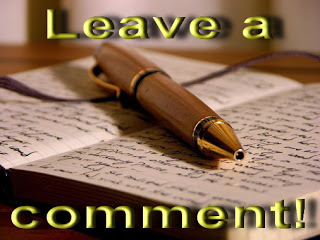
Clancy's comment: So, what are you superstitious about?
I'm ...

A visitor to my garden!
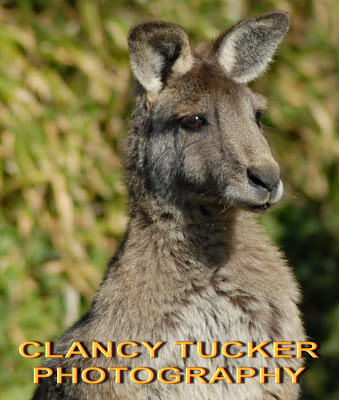
Published on August 08, 2015 03:15
August 7, 2015
8 August 2015 - TIPS FROM AUTHORS
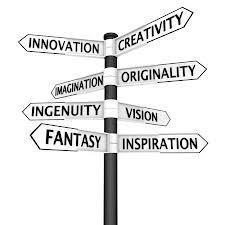
TIPS FROM AUTHORSG'day folks,
Time for some more wise words from famous authors.
Anne Enright
1 The first 12 years are the worst.
2 The way to write a book is to actually write a book. A pen is useful, typing is also good. Keep putting words on the page.
3 Only bad writers think that their work is really good.
4 Description is hard. Remember that all description is an opinion about the world. Find a place to stand.
5 Write whatever way you like. Fiction is made of words on a page; reality is made of something else. It doesn't matter how "real" your story is, or how "made up": what matters is its necessity.
6 Try to be accurate about stuff.
7 Imagine that you are dying. If you had a terminal disease would you finish this book? Why not? The thing that annoys this 10-weeks-to-live self is the thing that is wrong with the book. So change it. Stop arguing with yourself. Change it. See? Easy. And no one had to die.
8 You can also do all that with whiskey.
9 Have fun.
10 Remember, if you sit at your desk for 15 or 20 years, every day, not counting weekends, it changes you. It just does. It may not improve your temper, but it fixes something else. It makes you more free.
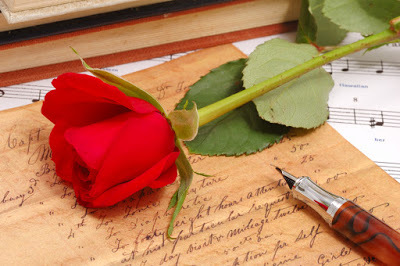
Richard Ford
1 Marry somebody you love and who thinks you being a writer's a good idea.
2 Don't have children.
3 Don't read your reviews.
4 Don't write reviews. (Your judgment's always tainted.)
5 Don't have arguments with your wife in the morning, or late at night.
6 Don't drink and write at the same time.
7 Don't write letters to the editor. (No one cares.)
8 Don't wish ill on your colleagues.
9 Try to think of others' good luck as encouragement to yourself.
10 Don't take any shit if you can possibly help it.

Clancy's comment: Mm ... There are some worthy comments here. I hope they have inspired you to keep going ... Especially number 10 above!
I'm ...


Published on August 07, 2015 03:31
August 6, 2015
7 August 2015 - A SON'S GIFT by Vera Rothwell

'A SON'S GIFT'
by
Vera Rothwell
G'day folks,
Here is another short story by Vera Rothwell. You may recall that Vera posted one of her other short stories on this blog some time back. This one is similar, in that it has a cracker finish. By the way, this is factual.
I have been a widow for almost eighteen months now. It has been a hard time, a time of learning, of making adjustments, of trying to cope, and most of all trying to come back to life.
For most of the first year I didn’t live, I just existed. The hardest thing I did each day was get out of bed, and the thing that I most looked forward to each day was going back to bed. I ate because I had to, not because I had any interest in food. I made the bed because it was what I always had done. I couldn’t settle to doing anything, accomplished nothing, and didn’t care. It was enough to just get through each day.
As the summer approached I slowly started doing things. I set myself a goal of achieving just one thing a day that I could feel good about. Sometimes I achieved my goal, sometimes I didn’t. So much needed doing around my house that I felt overwhelmed. One thing at a time, I reminded myself. I painted the bannisters on the stairs, where the paint had worn off and annoyed me for months. While I had the can of paint open I touched up other areas that needed it – the kickboards in the kitchen, the chips in the wall. I felt good about this.

On my top deck I had a plastic outside table and chairs. During a storm the table blew over, the legs came off and I found one leg in the pool, half another leg beside the house – it was no use, it could not be repaired. So I was on the lookout for another table. As I had very little money to spare I looked at the markets, the op shops and garage sales. One day my next door neighbours on both sides told me there was a glass topped table left out on the footpath not far from home. I raced around to have a look. The legs were rusty and worn, but the top was in great condition. I loaded it into my station wagon and took it home.
Getting it up the stairs proved to be impossible. Nothing daunted I enlisted the help of my neighbour and we took it to pieces. I carried the pieces upstairs and then took off for Bunnings. New paint, rubber feet for the legs – I was ready to roll. I laid the pieces out on a tarpaulin and got to work with the sandpaper, followed by the rust converter, then the undercoat and finally two coats of enamel paint. I then put the table back together by myself and voila! – a very nice table that was in no danger of blowing away.
Encouraged by this I expanded my outlook. I borrowed a pressure water blaster and cleaned my wooden pool deck; two lots of wooden stairs, the wooden pool pump cover, the top deck, the bottom deck, the back of the house, the front of the house, the tiles out front. Oh yes, I could do this! I even splashed out and went and bought my own water blaster. Then it was up to the top of the carport roof blasting away all the mould and muck up there. I caused quite a sensation with the cars going by, with lots of encouragement shouted out the windows.
I painted the letter box. I painted my white concrete planter pots. I even painted my concrete ducks.
But there are still things that a woman just can’t do by herself. My neighbours are fantastic, but I need to be as independent as I can. I was feeling something missing in my life, and after all, neighbours can only do so much.
My son asked me what I wanted for Mother’s Day. When I told him he blanched. This was definitely something that son’s do not want to think about their mother’s doing. He thought I was joking but no, I was serious.
After much hesitation he decided if that was what I wanted, well then he would overcome his prejudices and get me what I so needed.

On Mother’s Day, there it was in a box. I was thrilled. However, one problem. Some assembly was required. I didn’t think that I could ask my son to help me with it as he not very mechanically minded. Once again I asked my long suffering neighbour. He was a bit taken aback to say the least, but took my precious box and promised to see what he could do.
Finally this weekend I got to play with my new toy. On Saturday I used it so much that it fell apart again. My neighbour didn’t think there was anything more he could do to help so I did what everyone does when all else fails – I read the instructions. Step by step I followed the drawings – some of them took a bit of working out I can tell you. I made sure that I had the correct lubricant for it and gave it a go – no, same problem. Back to the instruction book – surely something so basic couldn’t be so complicated?
Finally I plugged it in and let it rev! Watching it spin round successfully absolutely thrilled me. I can do this!!
I needed an extension cord so I loaded it up and pulled the cord out, making sure that it didn’t get caught on anything. I didn’t want to spoil my fun again. Holding my breath I pressed the button and away it went! Yes! Yes! Yes!
I really love my new chainsaw.

Clancy's comment: Well done, Vera. Great start, good middle and superb finish.
I'm ...


Published on August 06, 2015 04:38
August 5, 2015
6 August 2015 - DAVID LYNCH
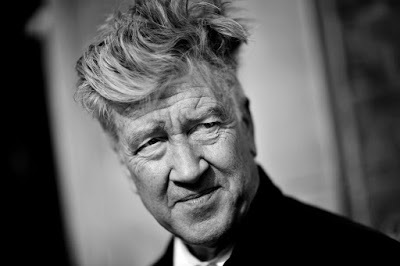
DAVID LYNCH
G'day folks,
Director and screenwriter David Lynch is known for dark, offbeat films that include 'Eraserhead' and 'Blue Velvet,' and for creating the television series 'Twin Peaks.'
“Absurdity is what I like most in life, and there's humor in struggling in ignorance. If you saw a man repeatedly running into a wall until he was a bloody pulp, after a while it would make you laugh because it becomes absurd.”
—David Lynch
Born in Montana in 1946, famed filmmaker David Lynch studied art before experimenting with film in the late '60s. In 1977, his first feature, Eraserhead, made its debut, going on to become a cult classic. He next directed The Elephant Man, for which he received two Academy Award nominations among a host of others for the film. Lynch has also directed Blue Velvet and created the acclaimed television series Twin Peaks. A vocal proponent of transcendental meditation, Lynch has added to his film ouevre with works like Lost Highway and Mulholland Drive.
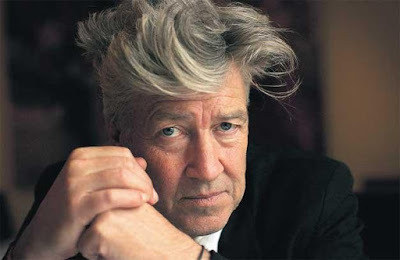
Early Years
David Keith Lynch was born in Missoula, Montana on January 20, 1946. Lynch moved frequently as a child due to his father's work as a research scientist. While still a student at a high school in Virginia, he began taking art classes at the Corcoran School of Art in Washington, D.C. After high school, Lynch made his way through Boston, Europe and Philadelphia to study art further.
In the 1960s, David Lynch began making short films, beginning with the animated Six Men Getting Sick (1966) and The Alphabet (1967), a combination of animation and live action. The Grandmother (1970) was Lynch's first completely live-action short film.
In the early 1970s, Lynch started work on his first feature film, Eraserhead, which premiered in 1977. The bizarre movie had a dark worldview, disturbing subject matter and a surreal tone, but it garnered enough attention to land Lynch the job of directing The Elephant Man (1980), starring John Hurt. That film received eight Academy Award nominations, including two for Lynch in the categories of directing and adapted screenplay.
Lynch's next directing gig wouldn't go quite as well, as he was picked to helm the science fiction film Dune (1984), an adaptation of a well-loved book starring Kyle MacLachlan and Sting, among many others. The movie was plagued with production problems and received scathing reviews upon its release.
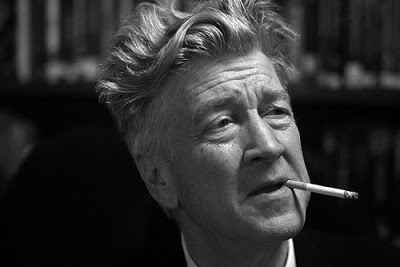
Chilling 'Blue Velvet'
In typical Lynchian fashion, the director recovered by turning back to his own vision, coming out with Blue Velvet in 1986. The film, which starred MacLachlan, Laura Dern and Isabella Rossellini, took a chilling look at small-town life. Though its darker moments led to some outraged reactions, Lynch received critical accolades and a second Academy Award nomination for directing. Lynch would continue in a similar vein with the violent Wild at Heart (1990). This controversial film won the Palme d'Or at the 1990 Cannes Film Festival.

Clancy's comment: Mm ... Another creative spirit.
I'm ...


Published on August 05, 2015 04:02
August 4, 2015
5 August 2015 - GREAT WISDOM

GREAT WISDOM
G'day folks,
Time for some more wise comments from folks around the world.
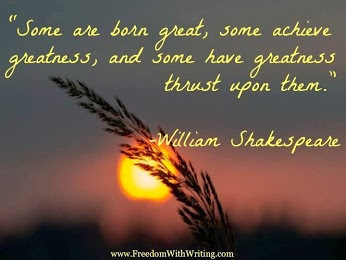
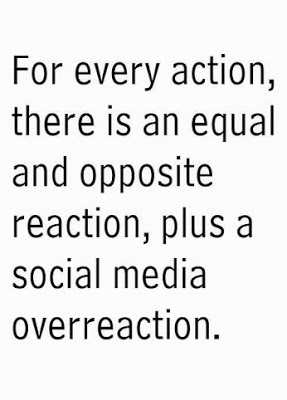
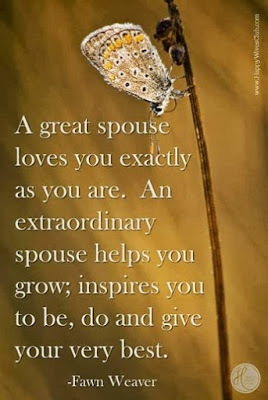
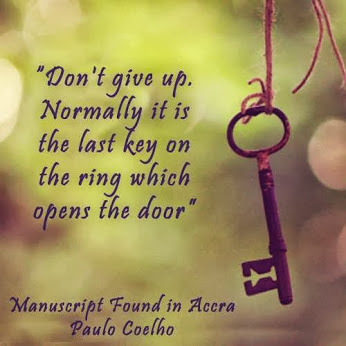
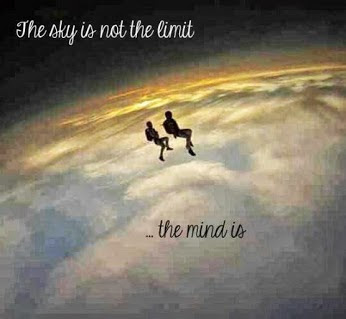

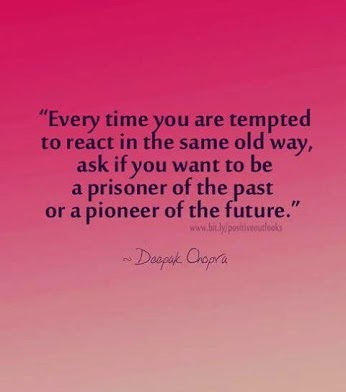
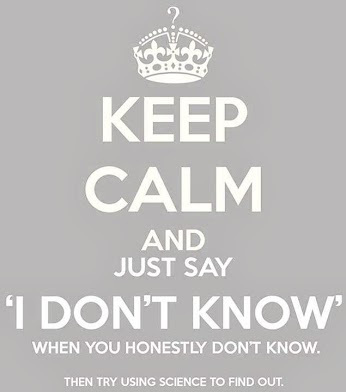

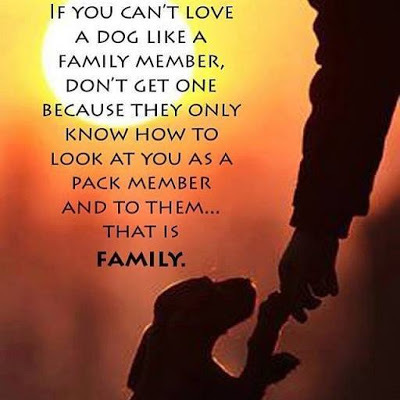
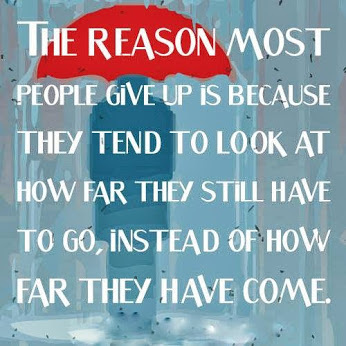
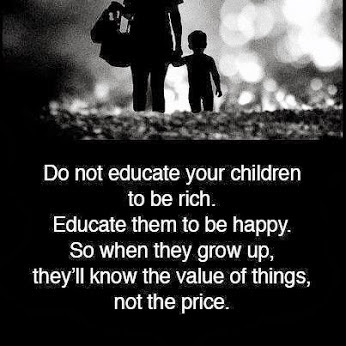

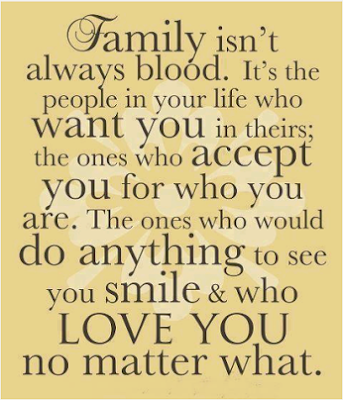
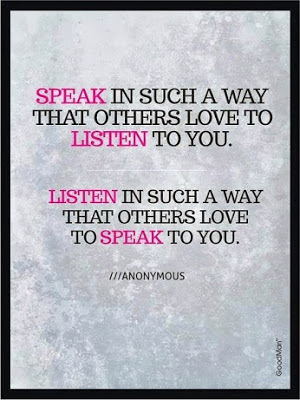
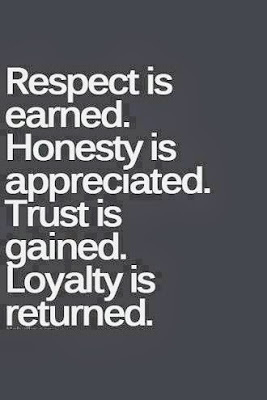
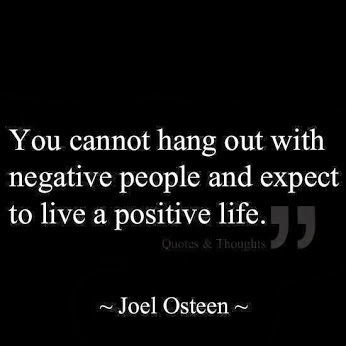

Clancy's comment: There ya go, folks. I hope some of these have fired you up. Stay positive.
I'm ...

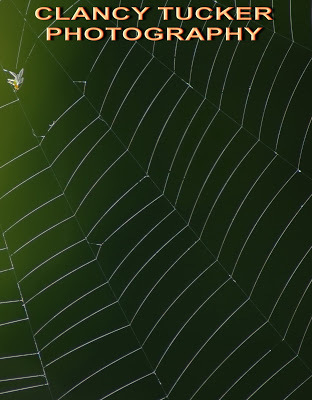
Published on August 04, 2015 03:48
August 3, 2015
4 August 2015 - KEVIN KLEIN - Guest Author
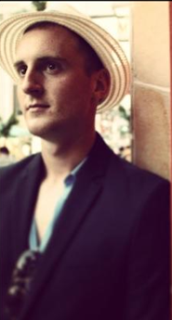
KEVIN KLEIN
- Guest Author -
G'day folks,
Welcome to an interview conducted with an aspiring author and US Marine.
Welcome, Kevin ...
1. Tell us about you and what you do.
My name is Kevin Klein, I am from Long Island, New York and I am a United States Marine and aspiring author/journalist.
2. What was the happiest moment of your life?
I’d have to say playing a game that my father named “Onco Bronco” when we were small children which consisted of my two older brothers and I, wrestling him to his back. We’d get carried away every time guaranteed, but being playful with my siblings seeing how happy it made my dad, that nostalgic feeling thinking back to playing Onco Bronco wraps up the feeling of my childhood. The good times.
3. What was the saddest moment?
The saddest moment, which was also a happy moment, was humping to the field on Boot Camp for our last training event before we were handed our Eagle, Globe and Anchor. On the hike, it was very quiet. We weren’t allowed to talk, and were carrying a lot of weight. It made me think of how close I was to coming home, and the lyric “got some things to talk about, here beside the rising tide” which is a Grateful Dead lyric that my father would always say to me. I was so excited to finish boot camp, because I knew me and my father had ‘some things to talk about’.
4. What surprised you most?
One huge surprise in my life, was the resilience of friendship. While in Tokyo with a close buddy of mine, we were out late as the sun was rising. We ended up getting into a scuffle over something very trivial and I thought then our friendship was over. I woke up three hours later to meet up with my local friends, and woke him up as well to come with me. We laughed about our fight as soon as we got to the subway and were more excited to hang out together in that moment than we were with our local friends. True friendship never wades, but only grows.
 Me and my brothers as kids
Me and my brothers as kids 5. What was your greatest disappointment?
Being a child with adult ideas, and being underestimated because of my age at the time. The lack of faith in younger adults and children to be inspiring is one function of our worldview is something I’d love to see evolve. Having to wait to be older to voice the same opinions and ideas I had years earlier was very disheartening to me.
6. Who did you misjudge? Why?
I misjudged myself, in terms of what I could accomplish during my late teens. I always compared myself to those around me, and not those I did not know. I didn’t know how else to gauge myself. By growing up in such a diverse area, it was hard to feel that I stood out, or how to. But by leaving my home, I realized how blessed I was from school and my environment that nurtured my character and inhibitions.
7. What or who was your biggest challenge?
My own temper. I normally had bouts with a bad temper, and with my pride. Especially by being in the military and being tested for years straight by people completely unlike me, and the challenge to overcome pride and anger was the toughest thing I’ve ever had to do.
8. What has been your biggest regret?
Not taking school more seriously at a young age. Due to the thought of graduating high school being so far away when my attention started going in other directions, I didn’t realize how my efforts would slowball into the next year, and the one after that. By the time I took school seriously in 11th grade, it was too late to make a turn-around. I made up for this by joining the military, and taking college classes online and on base to revitalize my GPA so that I can attend a respectable University once I leave Active Duty.
9. What would be your dying comment? Why?
I’d say to be happy when times are tough, because whether you’re happy or sad in those times, the environment in which you suffer through those times won’t change. But your perspective can open new doors, whereas a poor attitude cannot change something that already happened. So, people might as well be happy, because it’s between that and feeling sorry for themselves which is no fun.
10. Who or what stunned you the most?
I was stunned to realize how easy Boot Camp was. I joined the Marine Corps partially to prove to myself that I could do it. My first day I realized how easy it was going to be, which made the rest of it easier because I knew that I’d be okay.
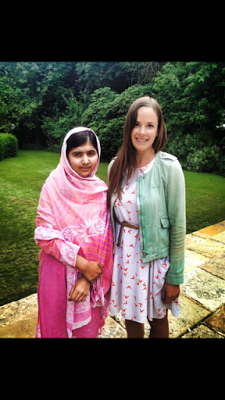 My sister with Malala Yousafzai
My sister with Malala Yousafzai 11. What would you like written on your tombstone? Why?
“Died a person”, because I believe being alive doesn’t constitute for being a person. Some people are disappointing, hateful, and unhelpful. It takes a lot of courage to be a person, and a lot of effort to be cruel.
12. Who would you rather have not met? Why?
There is no one that I wish that I had not have met, because life is a series of circumstances that lead us ultimately to where we need to be, or where we end up whether good or bad. And it’s on us to manipulate our situations to our benefit, because we’re our own biggest supporter. Had I not met the terrible people in my life, I would not have realized how strong my will to survive and succeed is. I’m rather thankful to everyone, whether good or bad.
13. Who were you most envious of? Why?
My cousin Zach. He was good at everything. He played the drums, bass, electric guitar, ran fast, got ‘the girl’, and was excelled in any sport, in music, he was strong and people respected him right off the bat. I envied those things in him and learned most of who I am now from having him in my life as a child.
14. Who did you forgive – for doing something you never thought you’d forgive?
Myself, for being an awful child to my parents when I was 14-16. I was evil, and caused my mother the greatest pain. But by knowing that I have the rest of her years to repay her, I learned to forgive myself because I had a lifetime to show gratefulness to her.
15. What was your greatest moment in your life?
When my sister got back from college her first summer. I drew a calendar on my wall with a crayon and made an X for every day that passed until she got home. It marked the day that my family returned to being complete. I will always hold on to that feeling, of being complete.
16. What is your greatest achievement?
Beating my dad in one match of tennis. Boot Camp and finishing my first novel by the age of 15 was easy compared to that. I haven’t beaten him since. It’s been 5 years.
17. What personal traits would you like to have in your next life?
To be a slick-talker. My opinions and convictions don’t allow me most often to smooth over people to get them to do what I wish them to do without sounding demanding or rude. I always envied that business man that could sway an opponent to something without them realizing what they were actually agreeing to.
18. What advice would you give to world leaders?
To do away with pride. It is the strongest ill of mankind. The ability to reason enables the capability to progress. Once we understand that facts, compassion, and reason integrated into a single conviction, we can do away with greed, inequality, and misrepresentation because we will have evolved into greater leaders.
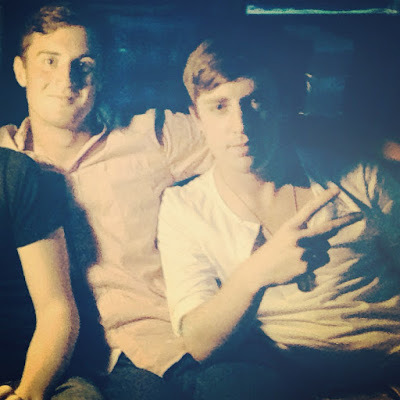 Me and my oldest brother
Me and my oldest brother 19. What advice would you give to parents today?
To always know that their kid loves them, no matter the circumstance. Even if they lost contact with their kid, above all, they are still loved even if they do not know how to or refuse to show it. Because of this, never lose hope in your children by losing hope in yourself if you think you have failed.
20. Who would you choose to be stuck on a desert island with?
Regina Spektor. She’s an incredible artist, and seems like she is very fun and uplifting. I can tell through her music what kind of person she is, and she’s hilarious. I’d cross my fingers out of fear of the possibility that she’s not very cool at all. Then I’d probably wish to hang out with my buddy Josh instead and make fun of each other until we run out of fish and coconuts.
21. Have any heroes? Why? Who?
My sister. She’s always been a role model to me and has never wavered. By always bettering herself, it pushes me further to better myself to keep up and to impress her. I’m the youngest and she’s the oldest, (wisest) between us four siblings, so there’s always a gap to catch up with. She keeps me motivated to always do better and to strive for more.
22. What are the greatest legacies you will leave behind?
Hopefully my imprint on media and journalism one day. I want to do so many things, I also don’t want to limit myself to just that. Like my sister was to me, I wish for my legacy to inspire others to lead in their own ways through my example. I suppose that would be swell.
23. What’s lacking in the world today?
Manors and education. Call me old-fashioned, but these two together can get a person far in life. It seems every generation people lose manors or respect for others. This is terrible, because it rolls into our leaders’ values and character. If we can respect each other, and be educated, we can build a better cohesive society.
24. Any pearls of wisdom for the rest of us?
To never second guess yourself. If you feel passionate about something, pursue it- because it’s probably something you’re meant to do. Never waver, and always continue to move forward. Never back.
25. What would be the last sentence you ever write?
“And it all continues”. Because life after my last piece of literature will definitely continue after, and everything in life is certain in the fact that “it goes on”. – Robert Frost.
26. What inspired you most?
Experiencing how friendly and kind Okinawans are. Though they live with little, they have such big hearts. This inspired me to think on a more worldly scale, and how our attitudes effect people’s actions.

27. Who or what made you laugh the most?
My oldest brother. Every time I see him, I end up crying from laughing so hard to that point that I can’t breathe. He’s the funniest person I know. Sorry to my buddies, my other brother and sister, it was a close call.
28. What would be your top three chosen careers in your next life?
Astronomy, Law, and Physics.
29. What is your prime focus in life today?
Finishing my book, getting out of the military and moving to Europe to study abroad.
30. Do you have any fear of doing something wrong?
No, because the only way we are able to grow is by doing the wrong thing. If we succeed every time, we will never attain our true potential.
31. If or when you reflect on your past, can you identify any world events that you believe had a significant impact on you?
Not an event in my lifetime, but learning about the monks that burned themselves in Tiananmen Square out of protest of Communist rule in Beijing. To believe so much in something to sacrifice your life out of activism is something that I hold dear going into journalism. I think that if you’re not ready to give your life to a cause that you wholeheartedly believe in, than it might not be worth fighting for.
32. Do you think one can live a purposeful life without knowing the meaning of life?
Yes. I think the meaning of life is irrelevant in terms of relative success and happiness. We are already here, so there shouldn’t be a reason to discredit our significance within our own world out of ignorance of what made us or why we’re here. I think because we’re here, nothing else matters. Since our world exists, we have a responsibility to our planet and to our communities.
33. From your perspective - what is the way forward for the world?
Doing away with greed, because that is truly the cause of a deteriorating world. Man made pollution is harming our environments, along with keeping practices or businesses afloat for the sake of profit even though they may very well be causing inequality and suffrage. We need to find purpose again in leadership and revitalize the say of the people and listen more closely to what scholars and scientists advise.
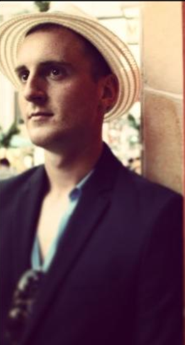
34. Imagine that you were given a chance to live again, what will you do first and what will you do differently? Jump straight into reading more, and taking more academic opportunities. I would take school more seriously, and I would also live more freely in my personal life and loosen up earlier on. I learned recently that life isn’t all that serious, and people tend to make things a bigger deal than they need to be. Go for the first kiss, sing when you want to, and go for your goals. Be bold. That’s what I’d tell myself to do differently. 35. Do you have a bucket list? Tell us more.Visit Machu Picchu, hike Mt. Everest, see all my favorite artists in concert, become an Oxford man, and to have made a great example to my kids I will have in the future.
36. Any great claims to fame? It’s my unrelenting determination and hopeless will to change the world one day. 37. Anything you’d like to add?
I’d like to add how grateful I am to Clancy Tucker for giving me this opportunity to reach his following and share my insight. This even helped me better appreciate how far I’ve come by looking back and looking to the future. I’m always interested in further getting in touch with the writing community, and welcome any networking from other writers and feedback from readers. Thank you for having me, and please, follow your goals!
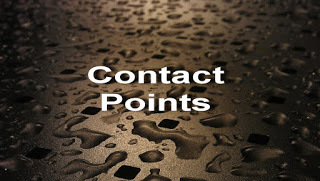
http://www.livelifethinkfree.blogspot.com.au/

Clancy's comment: Thank you for taking the time to be interviewed in your busy schedule, Kevin. Keep writing. Finish that book and keep going.
I'm ...


Published on August 03, 2015 03:43
August 2, 2015
3 August 2015 - JOAN KIRNER - Activist & Politician
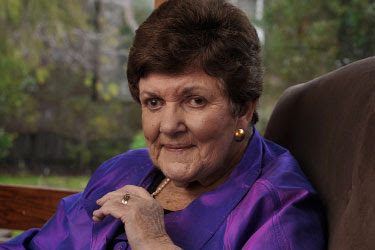
JOAN KIRNER
- Activist & Politician -
G'day folks,
Sadly, a great Aussie politician and activist recently died. Not only did Joan Kirner support my football club, she also played the guitar and was also the first female Premier to be elected in my home State of Victoria.
Joan Kirner was born on the 20th June, 1938, the only child of John Keith Hood, a fitter and turner, whose commitment to social justice Joan credits with shaping her political values. Her mother, Beryl Edith Cole, was a music teacher, whose belief that girls could do anything holds equal importance in explaining her daughter's life-long commitment to improving the status of girls and women (ABC 1 TV, Talking Heads).
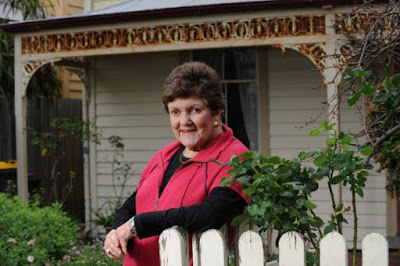
Joan graduated from Melbourne University in 1958, after which she taught at the Ballarat Girls' Technical College. Like all women at the time, her marriage to her husband, Ron in 1960 meant that she was precluded from permanency in the service, an injustice which fueled much of her activism as an education lobbyist and later, as Minister for Education. The birth of three children, and the shift to suburban Croydon, marked the beginning of Joan's career as a community activist, strongly supported by Ron and local women who have remained life-long friends.
Joan Kirner's career in politics has two distinctive phases: twelve years in the Victorian Parliament (1982-1994), the remaining decades in community politics. The latter began when she was elected President of the Victorian Federation of State Schools' Parents Clubs, (1971-1977), selected by Gough Whitlam to be the parent representative on the Australian Schools Commission, (1973-1978), and elected President of the Australian Council of State School Organisations (1975-1978).
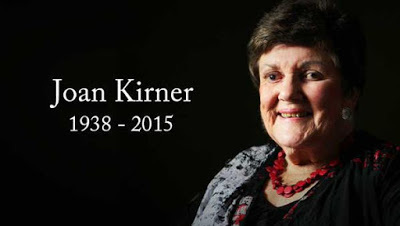
In the Victorian parliament, Joan held the positions of Minister for Conservation, 1985, Minister for Education, 1988, Deputy Premier, 1989, and Victoria's first woman Premier, 1990 to 1992. She retired from parliament in May, 1994. In the years since her retirement Joan has maintained her community activism as Victorian Communities Ambassador, and her commitment to supporting women into parliament, most notably through Emily's List which she co-founded in 1996.
Joan's feminist values of inclusion, recognizing individual talents, encouraging women's participation in every aspect of public life and decision-making, have informed her leadership. Promoting Landcare when she was Minister for Conservation, Joan worked closely with Heather Mitchell, President of the Victorian Farmer's Federation, and with key women in local land management programs. She believes that change only comes about when politicians take the community with them, and where power is shared between women working towards the same goals (The Women's Power Handbook.) 'If you want to change the world for yourself and your own kids, you've got to change it for and with other people, particularly, women' (The Wisdom Interviews).
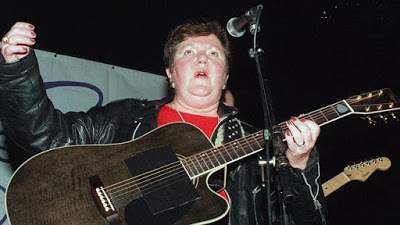
Joan relied heavily on friendships with women, most notably fellow Ministers, Caroline Hogg and Kay Setches, long-time friend and ALP Secretary, Jenny Beacham, and her Ministerial staff. 'No woman in politics can survive and be successful without a network of women…I would not have survived two years as Premier of Victoria without the support of women colleagues and women friends' ('To do something good'). The importance of maintaining friendships and networks between women, linking those with access to power with women in the community, informed how Joan operated as Minister, Premier and community politician (The Women's Power Handbook).
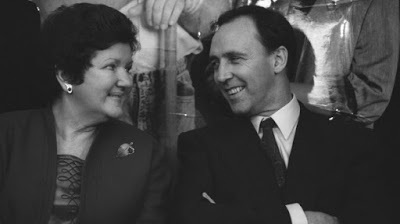
 Clancy's comment: Loved ya work, Joan ... Loved ya work! Rest in peace.I'm ...
Clancy's comment: Loved ya work, Joan ... Loved ya work! Rest in peace.I'm ...


R I P
Published on August 02, 2015 03:40



